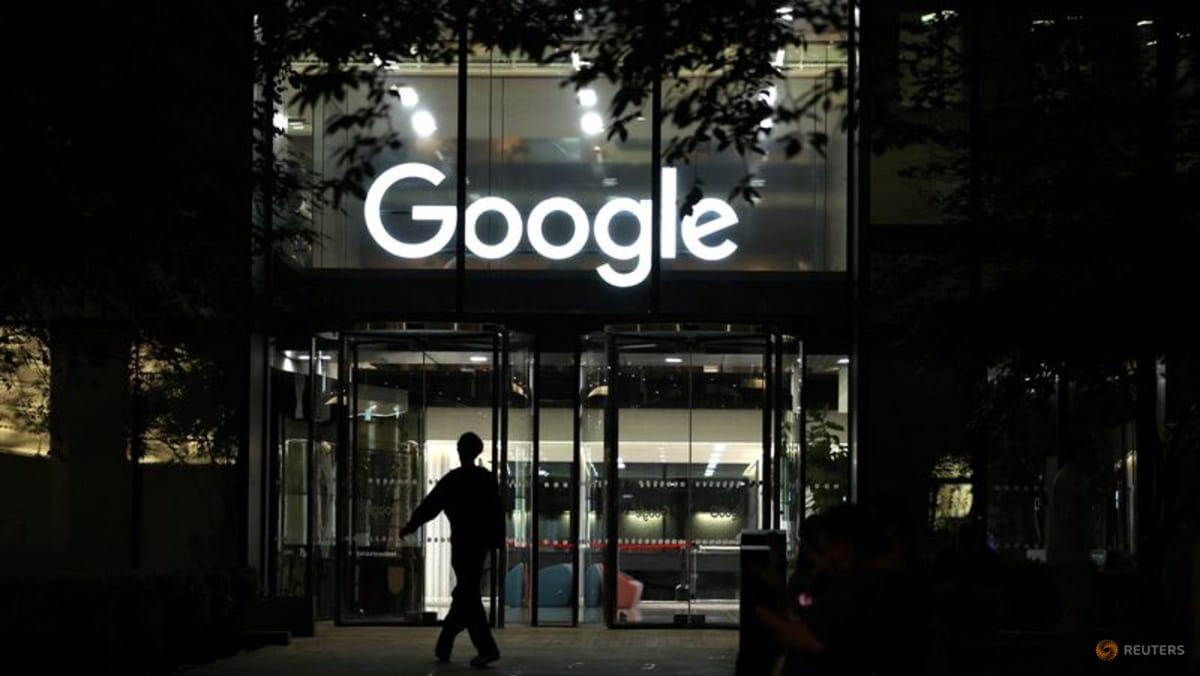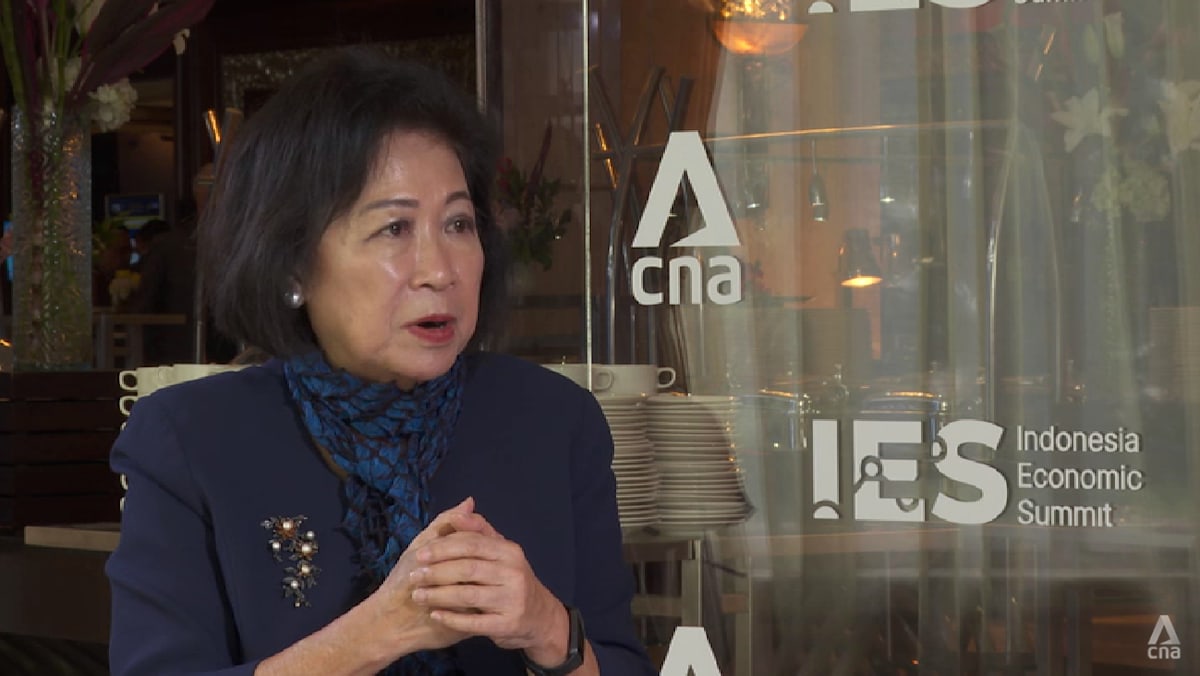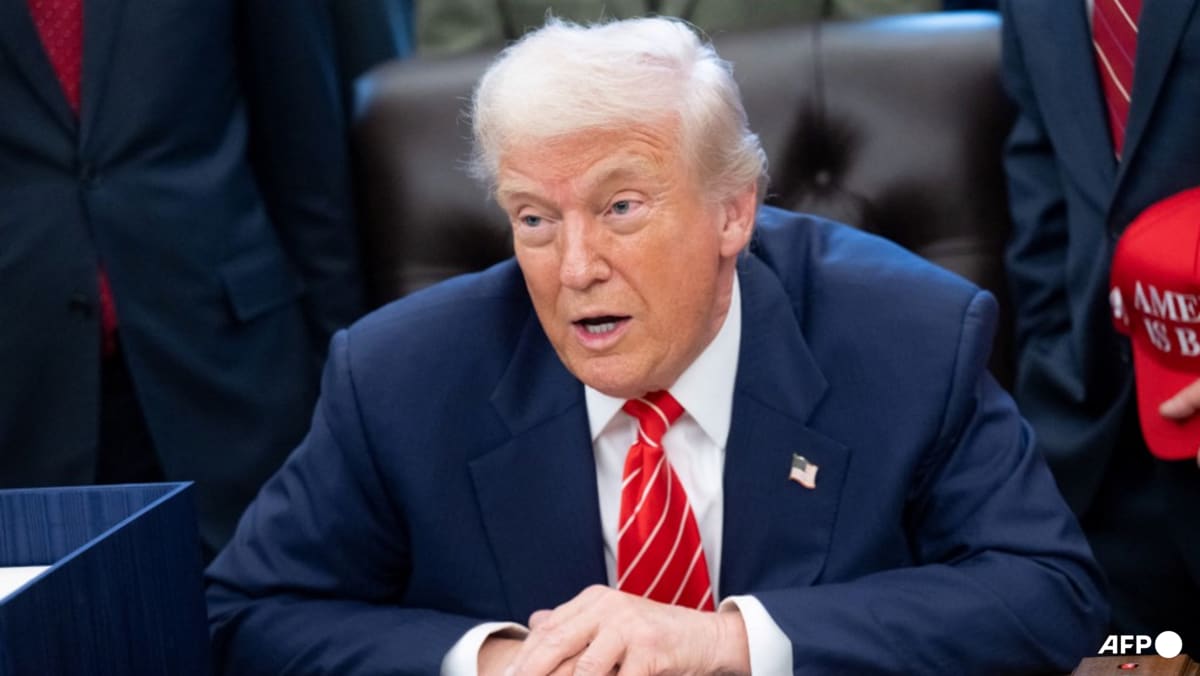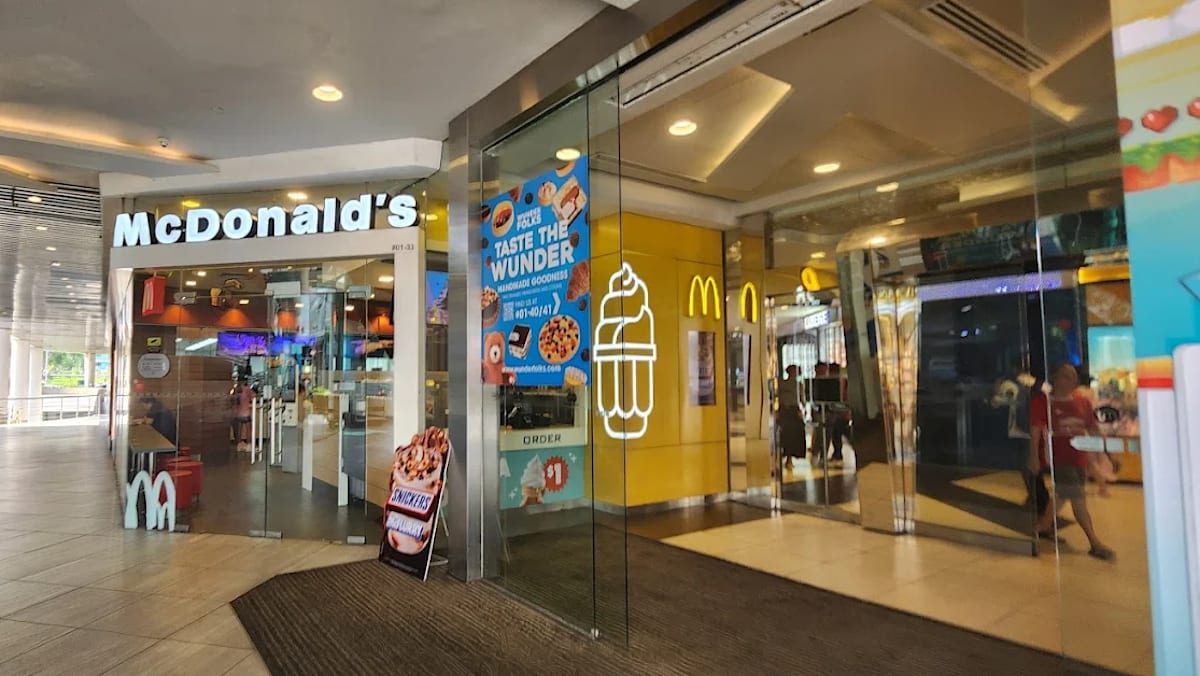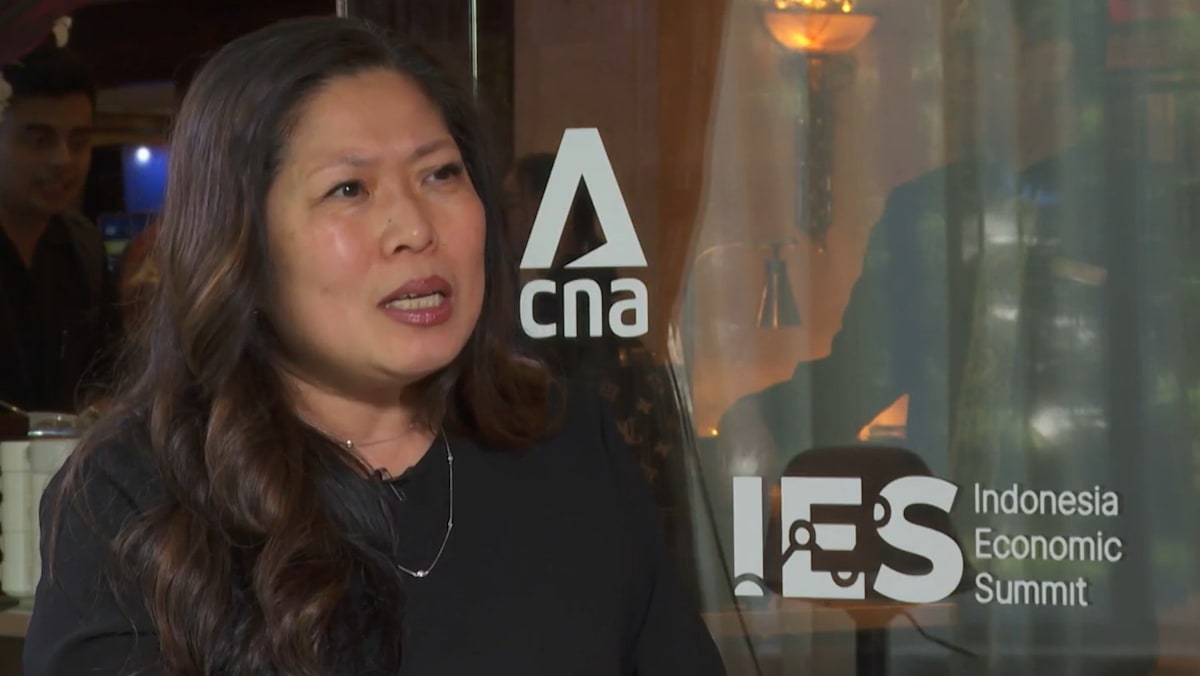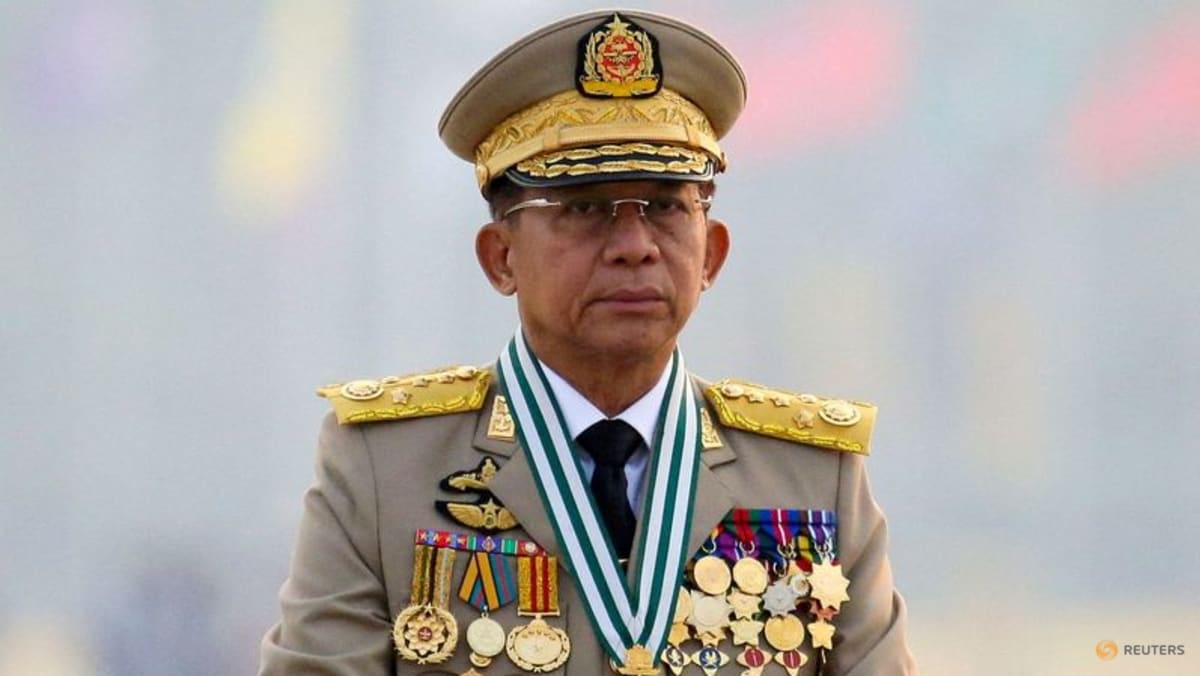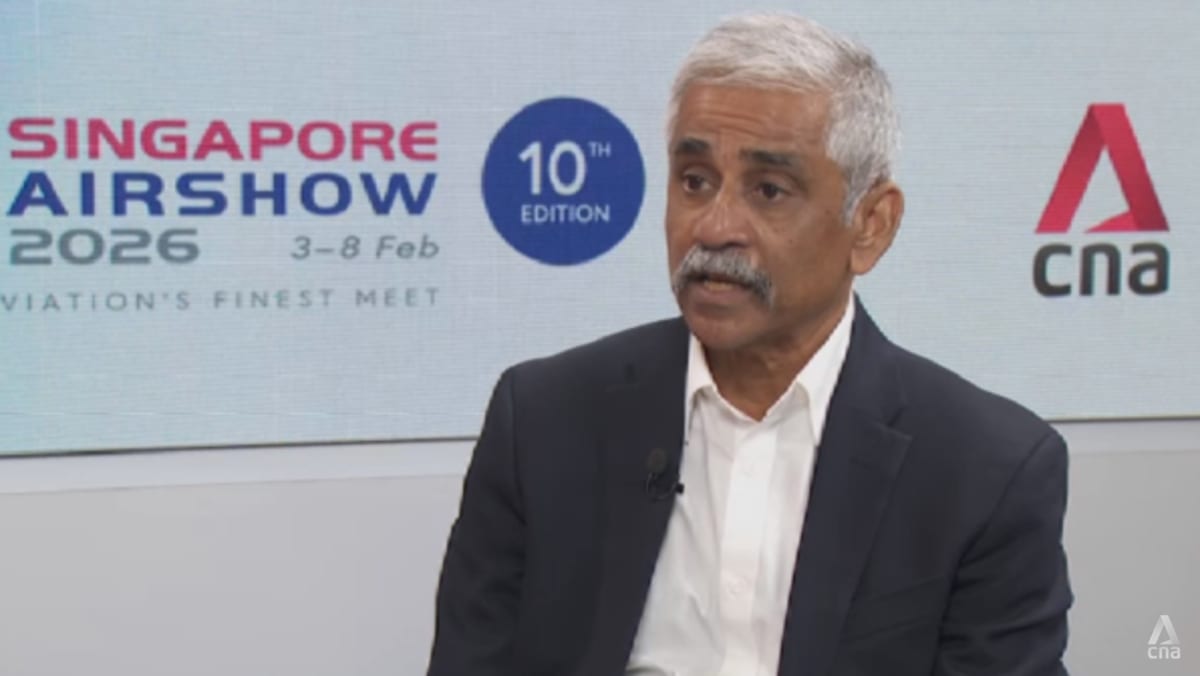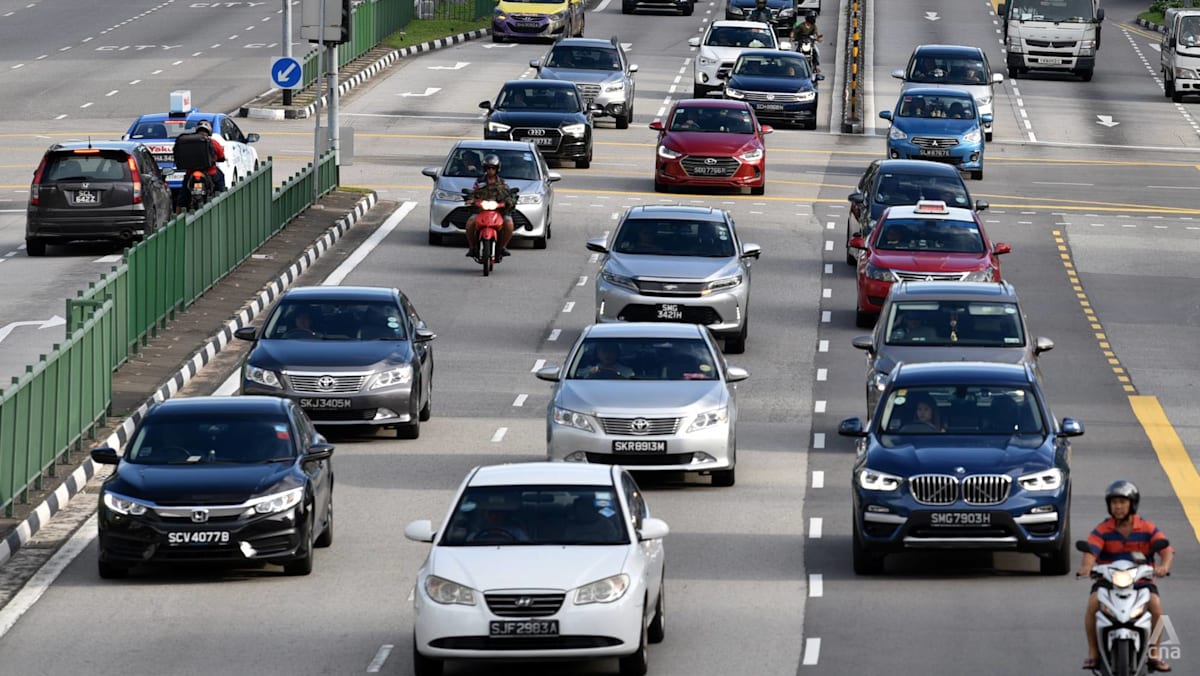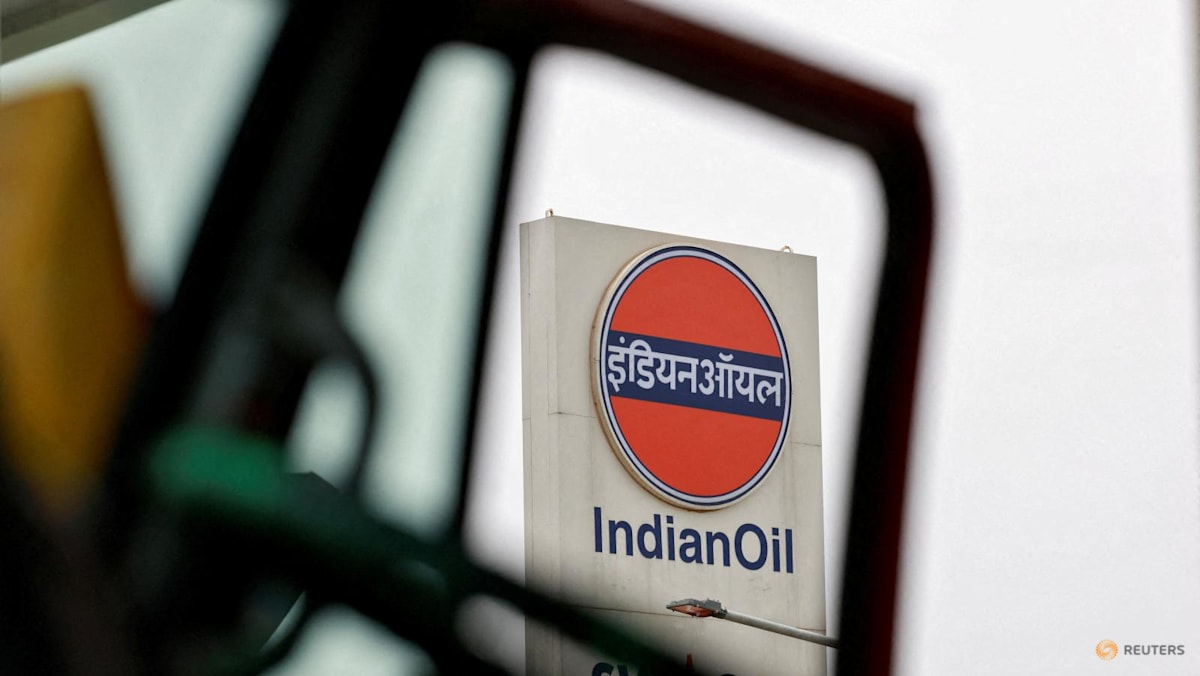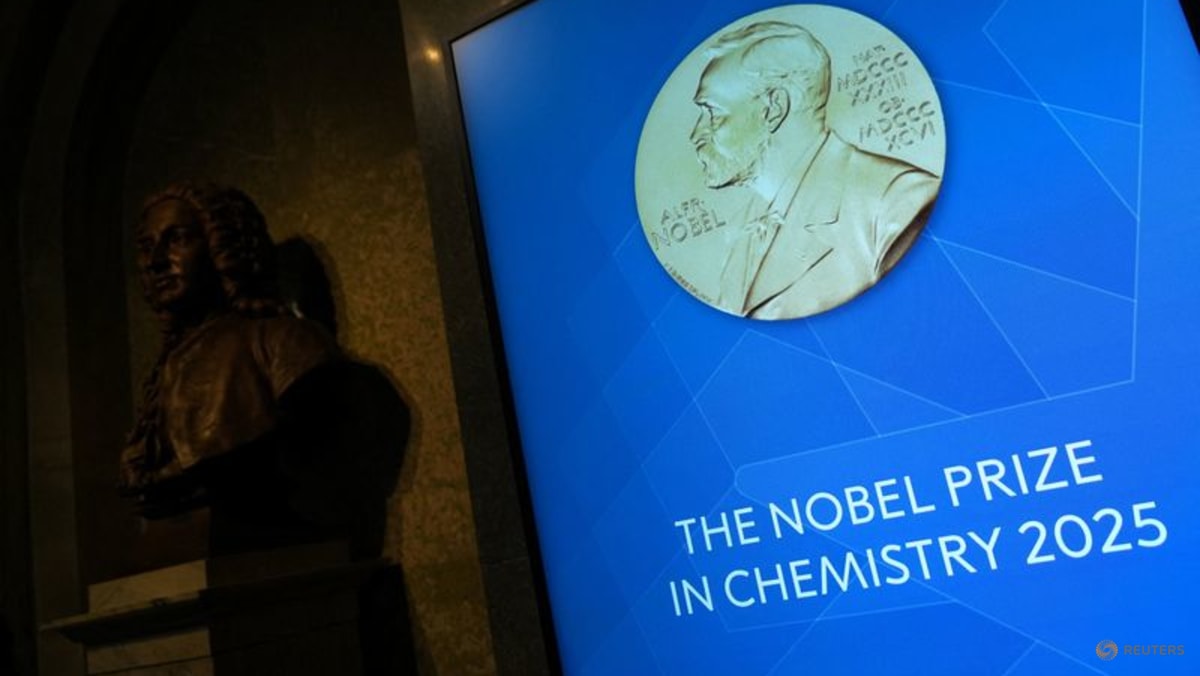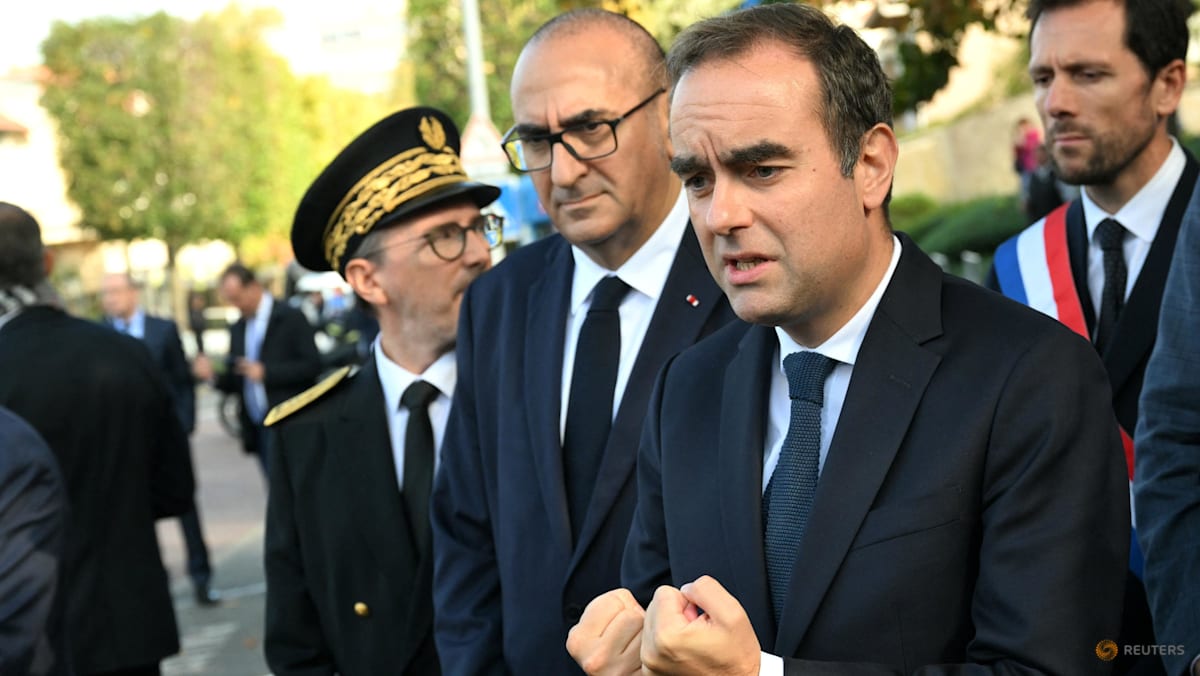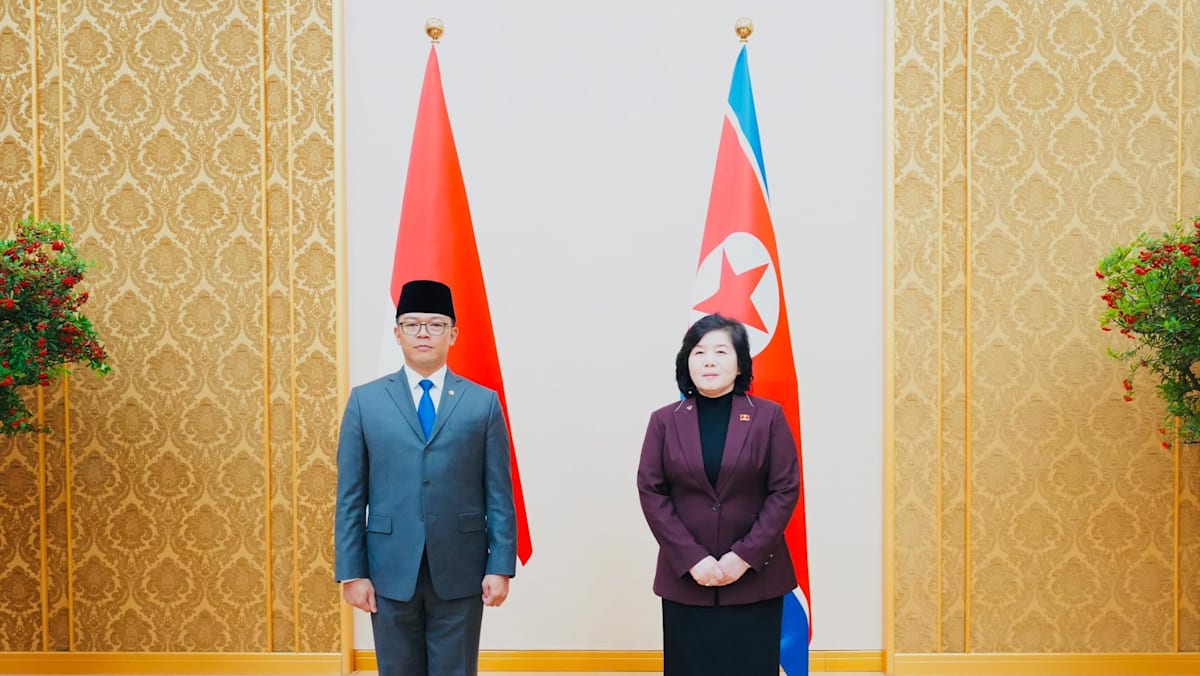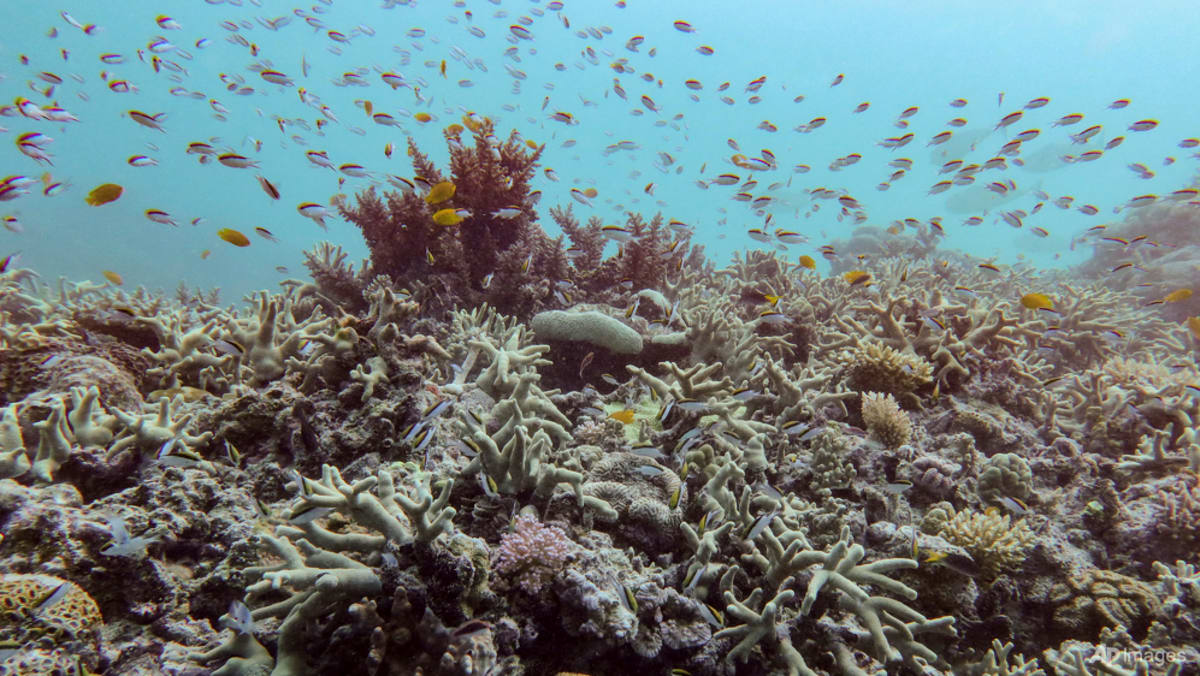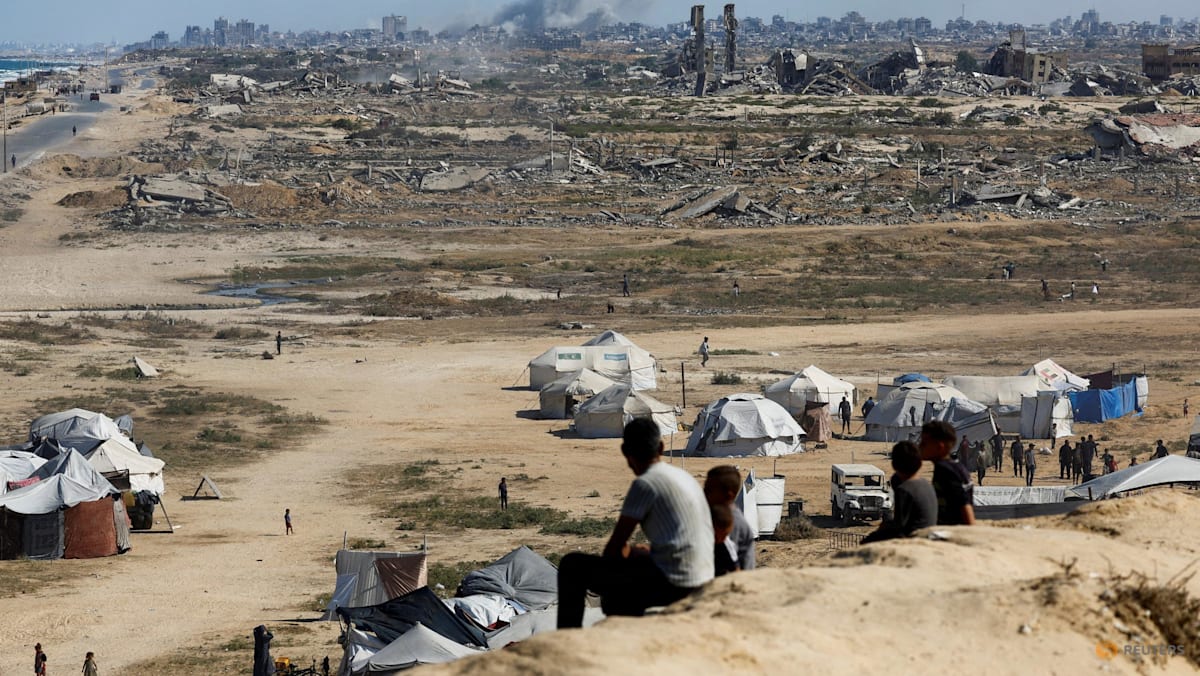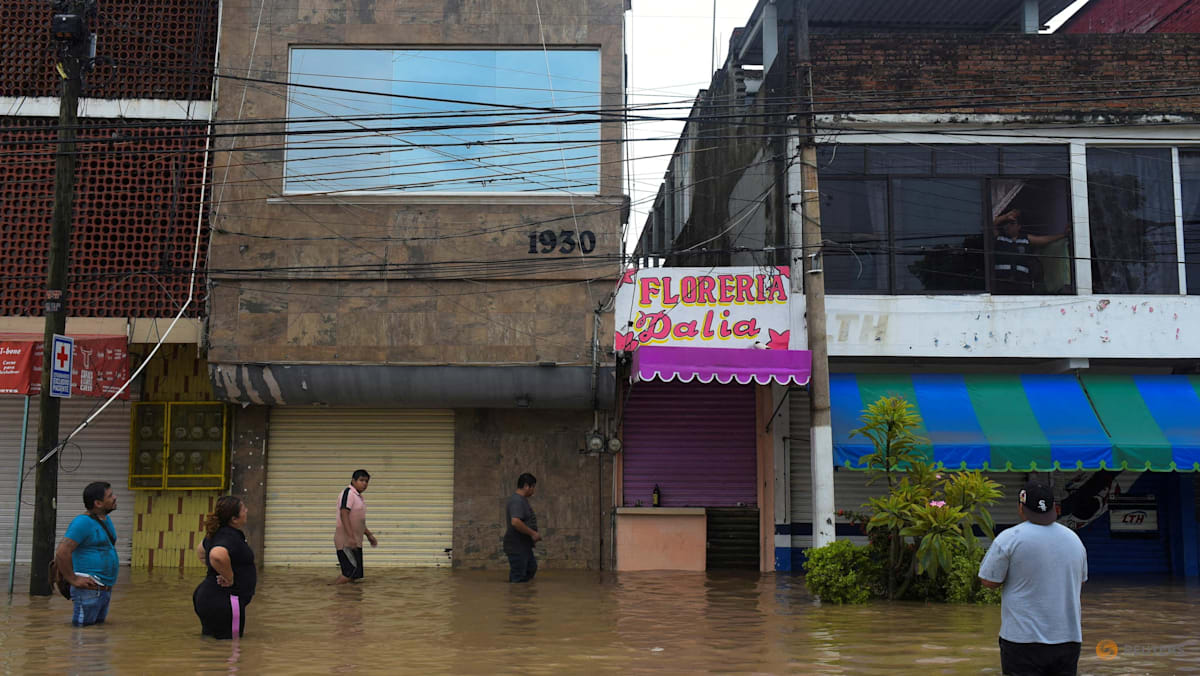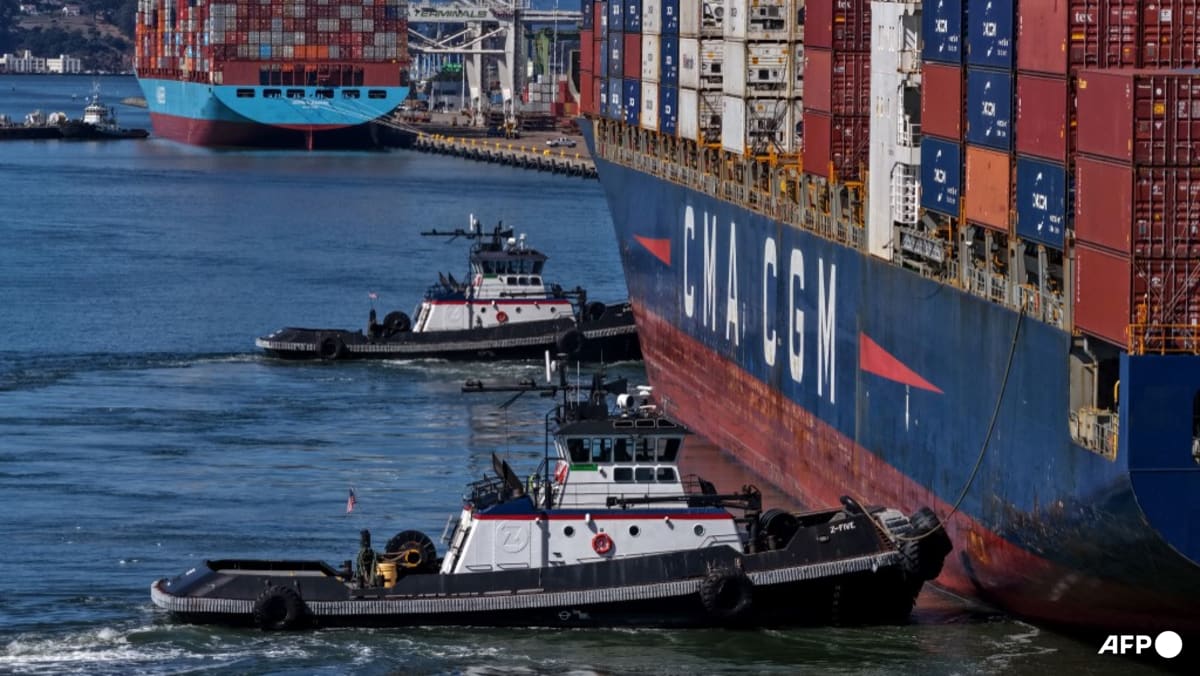JAKARTA: On paper, the Indonesian state-owned company that Arif works for has enormous potential: A vast market in a country of 280 million people, decades of expertise and easy access to government funding.
In reality, Arif said his employer has been bleeding money, weighed down by mounting debt, lawsuits, and corruption scandals that have scared off private partners and tarnished its reputation in recent years.
Arif requested not to disclose his full name and his workplace because he is not authorised to speak to the media.
But checks by CNA showed by Arif’s employer has been investigated, and its executives found guilty, in a number of cases ranging from fictitious projects to bribery and mark-ups dating back to 2016.
When President Prabowo Subianto established a new sovereign wealth fund called Danantara on Feb 24 this year to manage the assets of all state-owned enterprises (SOEs), Arif said he felt upbeat.
Danantara, with assets under management worth more than US$900 billion, aimed to free state firms from political interference and make them run like real businesses.
As Indonesia’s second sovereign wealth fund after the Indonesia Investment Authority, it also aimed to optimise outbound investments and draw more foreign investment.
“When I saw Danantara - the people behind it, their statements, their plans - suddenly I felt hope again,” said Arif, who is with the company’s legal department.
But with Indonesia on Oct 2 replacing the Ministry of State-Owned Enterprises with a new regulator called the State Owned Enterprise Management Agency (BP BUMN), it is unclear how the transition will be carried out and whether it will facilitate what observers say are long-overdue reforms.
On Wednesday (Oct 8), Prabowo appointed Dony Oskaria, the chief operating officer of Danantara and former SOEs deputy minister, to lead the new regulatory body.
“BP BUMN and the SOE ministry are nearly identical (in function). The bottom line: We want to quickly transform (Indonesia’s) SOEs … so they become effective companies,” Dony told reporters after his inauguration, as quoted by Detik.
“ We hope there will be collaborations between BP (BUMN) and Danantara.”
As regulator of Indonesia’s state-owned enterprises, the new agency, like its ministry predecessor, will retain the state’s golden share – a 1 per cent Class A stake – in each enterprise.
The remaining 99 per cent of government-held shares will be transferred to Danantara, which will serve as the operator.
The “golden share” gives the government special veto rights, including the authority to approve changes to the company’s articles of association, mergers, acquisitions, liquidation, or decisions that affect national interest, Indonesian media outlets reported.
While BP BUMN will formally manage the Class A shares on behalf of the state, all operational revenues and dividend policies will be consolidated under Danantara.
Experts are divided on the government’s decision to create a new regulatory agency instead of letting Danantara have full control over Indonesia’s SOEs, with critics arguing it could create more bureaucracy, slow down decision-making, and hinder reforms.
“It actually makes things more complicated. It just lengthens the bureaucratic chain,” said Bhima Yudhistira, managing director of the Center of Economic and Law Studies (CELIOS).
Others, however, welcome the change, saying the new law provides a clearer separation of powers between Danantara and the BP BUMN – something that had been ambiguous under the ministry of SOEs.
Before the law was amended, it was not clear who SOEs reported to and who called the shots, experts said.
“Institutionally, SOEs now stand on firmer ground because their roles are clearly delineated,” said Achmad Nur Hidayat, an economist at Jakarta National Development University, who believes the two bodies can balance each other out.
TURNING AROUND STATE-OWNED ENTERPRISES
Since taking office last year, President Prabowo Subianto has made reforming Indonesia’s sprawling state-owned enterprises one of his priorities.
In multiple speeches, he has highlighted losses made by SOEs, warning that mismanagement and corruption would no longer be tolerated and that law enforcers were keeping a close eye.
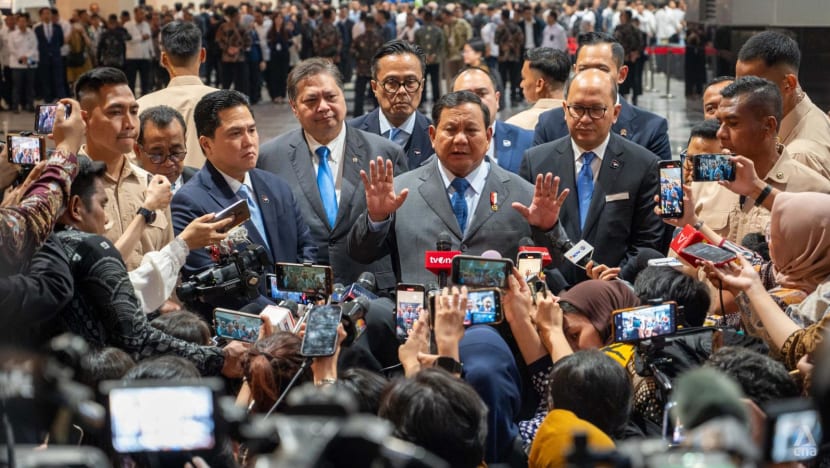 President Prabowo Subianto (centre) speaks to the media after attending a Danantara town hall meeting in Jakarta, Apr 28, 2025. (Photo: CNA/Ridhwan Siregar)
President Prabowo Subianto (centre) speaks to the media after attending a Danantara town hall meeting in Jakarta, Apr 28, 2025. (Photo: CNA/Ridhwan Siregar)
“I’ve ordered my management to clean up the SOEs,” he declared on Sep 29 at an event of the Prosperous Justice Party, a member of his governing coalition.
“Some of them are reckless. They’re entrusted with the people’s money, but act like these companies belong to their ancestors. The firms are losing money — and they still give themselves bonuses. Outrageous.”
If Indonesia’s SOEs could achieve even a modest five per cent profitability ratio, he said, they would more than cover the country’s 660 trillion rupiah (US$39 billion) fiscal deficit.
Danantara is expected to receive dividends of around 114 trillion rupiah from its 2024 financial year profit, CNBC Indonesia reported in August. The business news portal reported that 97 per cent of SOE dividends come from only eight SOEs.
In November 2024, Antara news agency reported that Bank Rakyat Indonesia, Bank Mandiri and state energy firm Pertamina were among the top 10 SOE dividend contributors to the government.
Of more than 1,000 SOEs, some are barely breaking even while more than half are running at a loss of around 50 trillion rupiah in total each year, Danantara COO Dony cited to CNBC Indonesia in August.
Danantara has been tasked with turning things around. The sovereign wealth fund aims to do so by cutting the number of state-owned enterprises to between 200 and 400 over the next three years through mergers, privatisations and dissolutions.
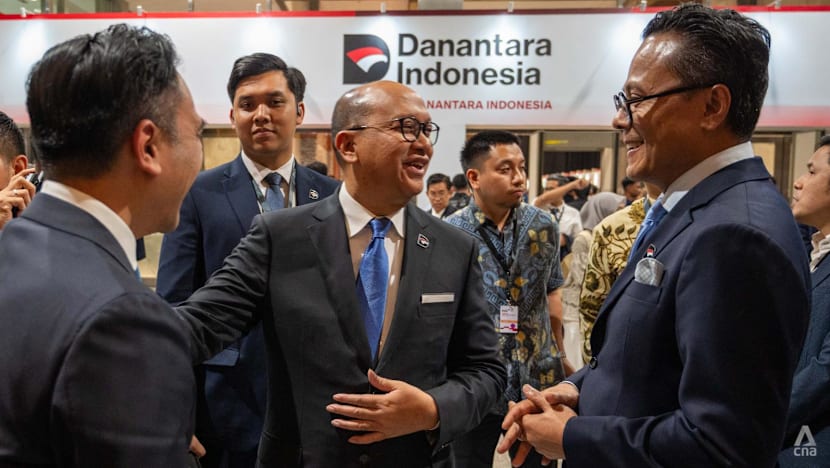 Danantara CEO Rosan Roeslani (centre) chats with COO Dony Oskaria (right) after the Danantara town hall in Jakarta on Apr 28, 2025. (Photo: CNA/Ridhwan Siregar)
Danantara CEO Rosan Roeslani (centre) chats with COO Dony Oskaria (right) after the Danantara town hall in Jakarta on Apr 28, 2025. (Photo: CNA/Ridhwan Siregar)
Experts warn Danantara could still face obstacles going forward.
Under the new law, BP BUMN holds sweeping powers to approve Danantara’s budgets and work plans.
“This gives BP BUMN a very dominant position within the SOE ecosystem — even more powerful than the former SOE Ministry,” said Herry Gunawan, director of the think tank Next Indonesia Center, as quoted by Tempo on Oct 6. “This development effectively reduces Danantara’s autonomy.”
Experts fear the sweeping power could result in a bureaucratic tug-of-war between Danantara and the new agency.
Some even predict that executives resistant to restructuring will exploit the overlap to play one institution against the other.
“You’ll have people siding with Danantara and others siding with BP BUMN,” said Bhima of CELIOS.
CNA has contacted Danantara and BP BUMN for comment.
WILL POLITICS DRIVE INVESTMENT?
According to the new law, the new agency is also authorised to “optimise” state-owned enterprises and ensure they remain “aligned with national development priorities.”
Such phrasing, critics say, is vague and open to multiple interpretations, potentially allowing the agency to intervene at will.
“In the name of ‘optimising SOEs', BP BUMN could summon executives or issue directives directly to state companies, bypassing Danantara altogether,” warned Herry of Next Indonesia Center.
Experts caution that such sweeping authority could be misused to compel SOEs to take on projects that look good on paper or serve short-term government agendas, but are financially unsustainable.
“This is where the danger lies,” said Tauhid Ahmad, a senior economist at the think tank Institute for Development of Economics and Finance (INDEF).
“When SOEs are pushed to fund or execute projects that don’t make commercial sense, they carry the losses while the political benefits go elsewhere. In the end, it erodes their balance sheets, undermines their credibility with lenders, and forces taxpayers to pick up the bill.”
One example is Whoosh, Southeast Asia’s first high-speed railway - a flagship project championed by former president Joko “Jokowi” Widodo and financed largely through a US$5.4 billion loan from the China Development Bank, which covered about 75 per cent of the total cost.
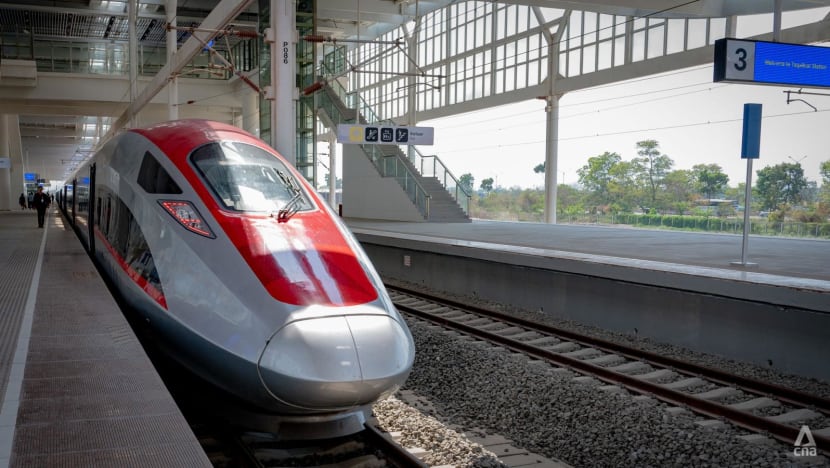 Indonesia's first high-speed train Whoosh at Tegalluar Station in Bandung regency, West Java. (Photo: CNA/Danang Wisanggeni)
Indonesia's first high-speed train Whoosh at Tegalluar Station in Bandung regency, West Java. (Photo: CNA/Danang Wisanggeni)
The line was hailed as a symbol of national pride when it opened in 2023. But weak passenger demand has left the project racking up 4.2 trillion rupiah in losses last year and another 1.24 trillion rupiah in the first half of 2025.
A group of state enterprises called PT Pilar Sinergi BUMN Indonesia, which holds a 60 per cent stake in the Indonesia-China joint venture running Whoosh, has borne most of the financial strain.
Despite the losses, Coordinating Minister for Infrastructure Agus Harimurti Yudhoyono said last month that the Prabowo administration remains keen to expand the high-speed rail network to connect Jakarta and Surabaya, a distance of roughly 670 km. The current line covers 142 km, linking Jakarta and Bandung.
Meanwhile, local media have reported that Jokowi’s infrastructure push has left several of Indonesia’s state construction firms struggling under massive debts accumulated since he first took office in 2014.
Four of the country’s largest construction SOEs — including Waskita Karya and Wijaya Karya — have faced mounting difficulties repaying loans taken to fund toll roads, airports, and public housing projects.
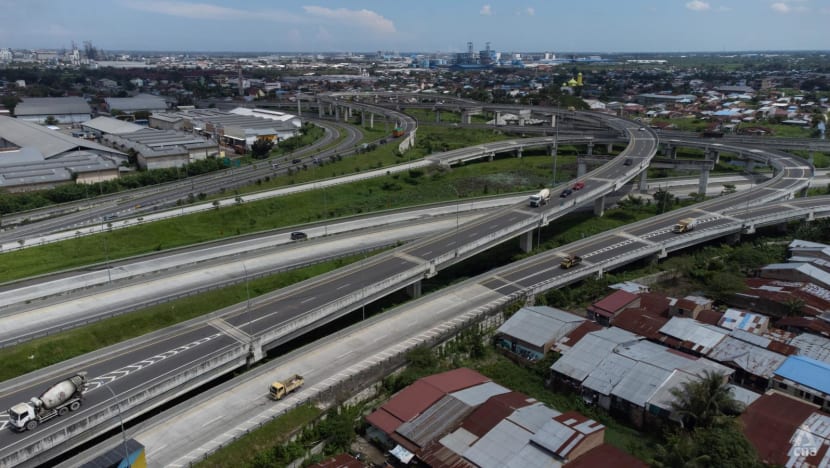 A toll road junction in Medan, Indonesia, one of the many infrastructure developments in Sumatra under the Jokowi administration. (Photo: CNA/Wisnu Agung Prasetyo)
A toll road junction in Medan, Indonesia, one of the many infrastructure developments in Sumatra under the Jokowi administration. (Photo: CNA/Wisnu Agung Prasetyo)
Their combined debt peaked at 215 trillion rupiah in 2021 before easing to 184 trillion rupiah in the first quarter of 2025, thanks largely to debt restructuring and government bailouts.
These figures highlight the cost of politically driven development projects, economists said.
“For years, SOEs have been used as tools of fiscal policy — asked to build, borrow, and spend, even when the returns don’t add up,” said Tauhid of INDEF.
“That model is unsustainable. When politics drives investment, companies end up with debt, not growth.”
PROHIBITION ON HOLDING DUAL OFFICES LAUDED
Experts, however, lauded the new law’s prohibition on dual office-holding and the requirement that SOE commissioner positions be filled by professionals rather than political appointees.
A commissioner in Indonesia is similar to a board member in other countries.
“Banning commissioners from simultaneously holding ministerial or vice-ministerial positions is a fundamental step toward reducing conflicts of interest,” said Achmad of Jakarta National Development University.
A 2022 report by the Asian Development Bank noted that “many senior managers, including board members, have historically been politically appointed and were not qualified for their roles”. This has led to “poor management and lax governance of SOEs” and, in several cases, “notable instances of operational mismanagement.”
Data from the non-profit Indonesia Corruption Watch show that between 2016 and 2023, there were 212 corruption cases involving SOEs, resulting in the conviction of 349 officials.
But political appointments have persisted under Prabowo. His administration has appointed 33 vice-ministers as SOE commissioners - a practice Minister of State Secretary Prasetyo Hadi said will soon end in compliance with the new law.
Under Prabowo, commissioner posts have also been awarded to politicians, entertainers and campaign volunteers.
Among them are actor-turned-campaign manager Fauzi Baadilla, who became commissioner of postal operator Pos Indonesia in July 2024, and composer Yovie Widianto, who was appointed commissioner at fertiliser producer Pupuk Indonesia in June 2025.
 Actor-turned-politician Fauzi Baadila. (Photo: Great Indonesia Movement Party)
Actor-turned-politician Fauzi Baadila. (Photo: Great Indonesia Movement Party)
Achmad said the challenge now is ensuring that the reform is enforced, not merely declared.
“We need mechanisms that can withstand public scrutiny — independent nomination committees based on sectoral competency, clear cooling-off periods for those with potential conflicts of interest and measurable, publicly reported key performance indicators for commissioners,” he said.
“Without transparent processes, professionalism will continue to yield to proximity.”
The new law is a step in the right direction but still leaves room for improvement, said Achmad.
For one, BP BUMN’s powers must be clearly defined – enough to ensure that SOEs continue to prioritise public service over profit, but not so broadly that they can be exploited for short-term political gain, he said.
He added that regular, publicly accessible reports for all SOEs would be crucial to strengthen transparency, allowing the public to track how state funds are used and how each enterprise performs.
“Since this law is already in place, the best way forward is to strengthen checks and balances,” Achmad said.
“If the guardrails work as intended, they will protect the state budget from undue burdens.”

